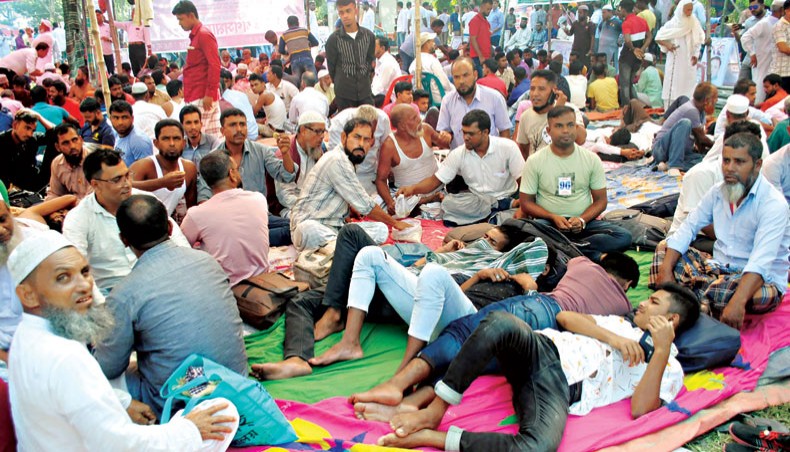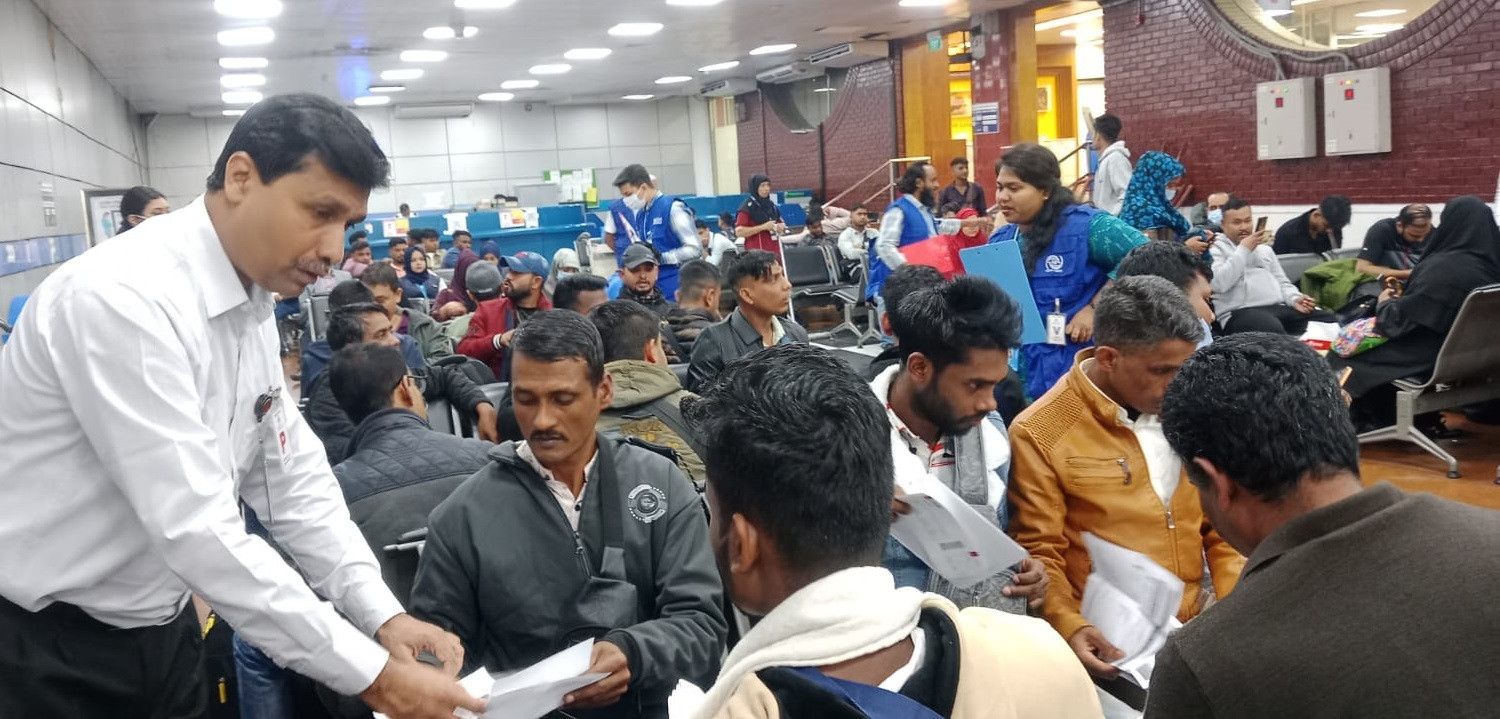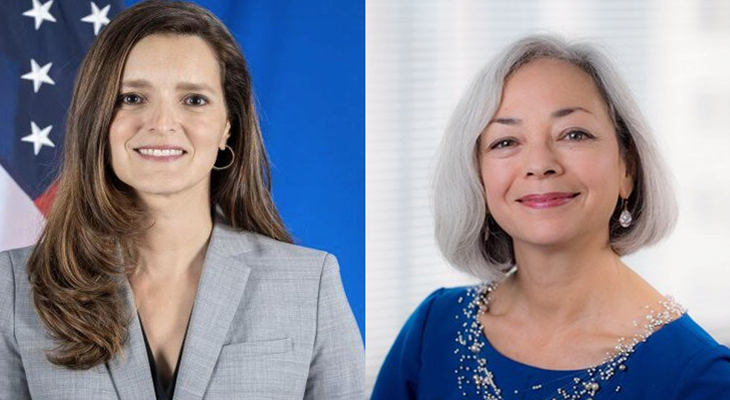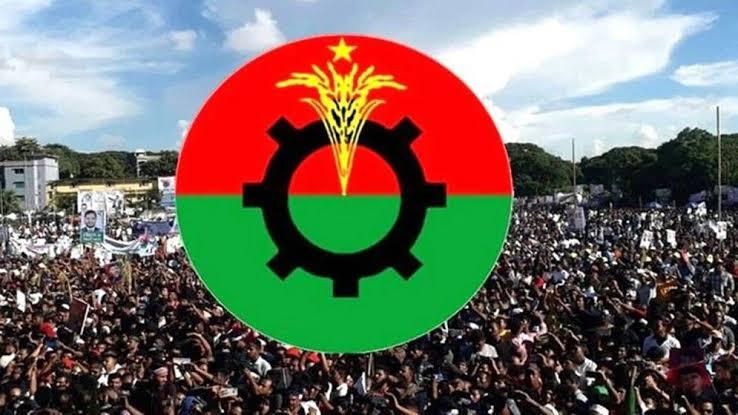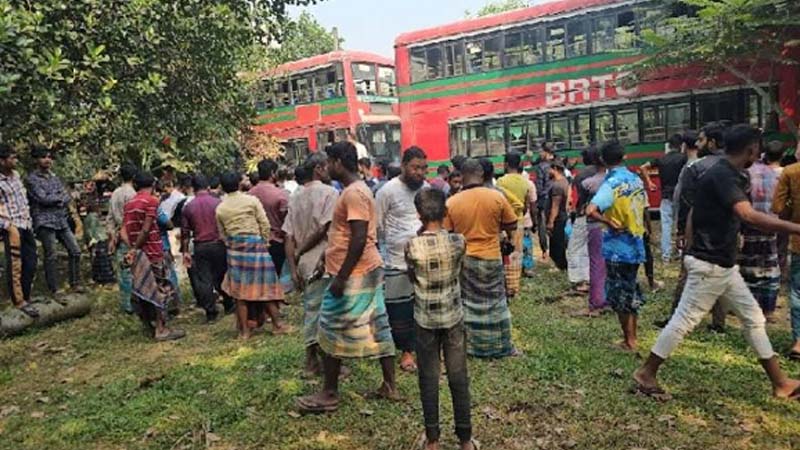People suffered immensely as the southern district of Barishal was made almost detached from the rest of the country on Friday with the suspension of all modes of transport except trains ahead of today’s mass rally of the main opposition Bangladesh Nationalist Party.
Despite strikes and other obstacles, Bell’s Park [Bangabandhu Udyan]—the meeting place—became crowded with several thousand BNP activists gathering there on Friday by boats, trawlers, launches, and walking.
Along with buses, launches, and speedboats, the movement of ferries and three-wheelers also came to a stop on Friday morning, something that was expected to continue until the end of the BNP’s rally in the city.
Hundreds of BNP activists from adjacent districts, including Barguna, Bhola and Pirojpur, were seen staying inside trawlers, launches, and boats for hours to join the rally today.
BNP senior joint secretary general Ruhul Kabir Rizvi told New Age on Friday that in the past three days, the party leaders and activists were being obstructed from entering Barishal from different districts, and many were injured.
‘Still, a huge number of our leaders and activists have already gathered in Barishal,’ he added.
Different political parties condemned the suffering of people and the role of the ruling Awami League ahead of the rally of the main opposition.
On October 25, transport owners in Barishal announced that they would keep bus services to and from the city closed for two days on November 4-5 protesting against the movement of unauthorised three-wheelers on highways.
The launch owners on Thursday announced a strike for the same period, protesting at the hike in fuel oil prices.
Launch strikes, however, begin early, as no launch or speedboat has left Barishal River Port and other ghats since Thursday morning.
BNP leaders have alleged that buses heading towards Barishal city have also been barred from running since Thursday.
From Friday morning, with the movement of buses and three-wheelers coming to a stop, people in the region suffered immensely.
State-run Bangladesh Road Transport Corporation Barishal Bus Depot manager Md Jamshed Ali told New Age on Friday that some of their buses ran on a few routes, including Rangpur, but they closed the service early as the number of passengers was very few.
After visiting the spots, it was found that all retail and wholesale kitchen markets at Charkaua Ferry Ghat near Barishal river port were closed due to the closure of ferries and transports.
Charmonai ferry ghat in Beltala and Chandmari ferry ghat have also been closed since Friday morning.
Even boats and trawlers are not able to move from these ghats.
Muhammad Ali, a Barishal city resident, said that he wanted to go to Swarupkati after receiving the news of his mother’s death, but he was not getting any transport.
‘I have to go, even by walking 30 miles,’ he said with a numb face.
Muhammad Baejid, a resident of Rupatali housing area, said that he, along with his family members, was going to Nazirpur upazila in Pirojpur by hiring transport paying an extra fare.
A youth named Islam Beware reached Barishal on Friday on water transport and was looking for a transport to travel to Gournadi. He started walking for the 40-kilimetre journey having failed to manage transport.
The residents of the city also suffered in carrying out their daily activities due to the strikes.
Bangladesh Railway west zone general manager Asim Kumar Talukder told New Age that they have no direct train service till Barishal and the train communication with Gopalganj and Khulna was normal.
Meanwhile, BNP activists were seen entering the town on Thursday by at least 100 trawlers, which were anchored at different river banks, avoiding regular ghats.
A launch from Bhola arrived carrying many activists from the Chandmari area, and they are now staying on the launch.
BNP leaders in Barguna alleged that they had hired 10 buses in advance to come to Barishal on Thursday, but the administration forced the owners to refuse the trips and give their money back.
BNP leaders and activists came to the rally spot on Friday in 41 trawlers.
Bell’s Park became crowded with several thousand BNP activists and leaders on Friday, with some of them seen resting on mats and inside tents, others preparing foods, and all chanting slogans in a festive mood.
Thousands of them offered Jumma prayers after taking a bath on a nearby lake on Friday noon, as the place was bustling with processions, billboards, festoons, and hawkers.
BNP student wing Chhatra Dal paraded down the city with a huge procession.
The entire Barishal city, including Sadar Road, Band Road, Zilla School Cross, Raja Bahadur Road, and Launch Ghat, is covered with colourful banners and billboards.
BNP leaders and activists from different areas of Bhola, Barguna, and Patuakhali said they preferred river routes and water transport to reach Barishal, as ruling party activists often attacked them at different points on their journeys.
Pirojpur BNP activist Mohammad Rashid said that they had brought 400 kg of rice and 100 kg of daal to prepare dinner and lunch on the field till their return.
Safiqul Islam of Barguna’s Amtali upazila said that their 2,000 leaders and activists came with adequate rice, daal, and even wood for cooking for their activists.
BNP leaders from Charfasson of Bhola claimed that at least 10,000 activists had reached Barishal from their area via various routes and transport.
On Friday, the police were seen checking the documents of private vehicles at the entrances to the city, asking for destination and cause of travel.
Barishal Metropolitan Police deputy commissioner Ali Ashraf Bhuiyan told reporters that they were doing their regular work to ensure safety and security.
BNP secretary general Mirza Fakhrul Islam Alamgir, along with other senior leaders, reached Barishal by air on Friday evening and entered the city by motorcade.
Before he entered the city, Bangladesh Chhatra League activists also paraded the city with a motorcade.
Condemning the role of the ruling party, Manisha Chakroborty, member secretary of the Barishal district unit of Bangladesher Samajtantrik Dal, said that causing suffering to people by closing transport to foil a programme of the opposition party could never be acceptable.
Mawlana Kawsar Hossain, city unit chief of Islami Andolan Bangladesh, said that everyone has a right to place their programme before the people.
Mohsin ul Islam Habul, the city convener of the Jatiya Party faction led by GM Kader, said that the ruling party again proved their behaviour by creating obstacles for the BNP programme.
Abdur Rashid Neelu, the Barishal district convener of Ganosamhati Andolon, said that the transport strikes were not only undemocratic but also not acceptable.
On September 28, the BNP announced plans to hold mass rallies in the divisional city headquarters for the next two months as part of its ongoing movement demanding the resignation of the AL-led government and the release of BNP chairperson Khaleda Zia, protesting at the abnormal increase in the price of fuel oil and daily commodities and the killing of BNP leaders and activists.
The party organised rallies in Chattogram on October 12 amid arrests and attacks, in Mymensingh on October 15 amid a sudden transport strike, in Khulna on October 22 amid bus and launch strikes, attacks and arrests and in Rangpur on October 29 amid a two-day bus strike from October 28.


